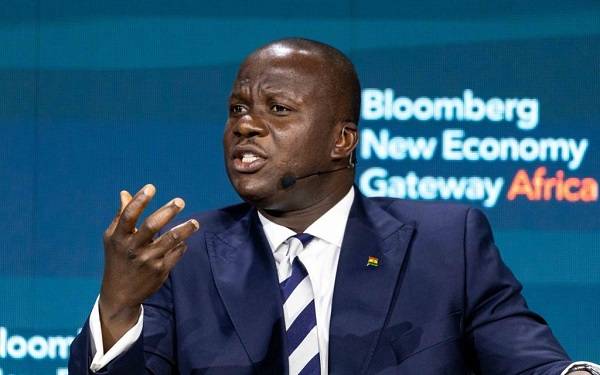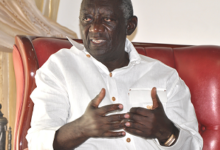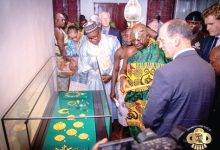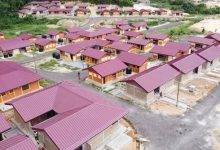
The Minister of Lands and Natural Resources, Samuel A. Jinapor, says Ghana’s extractive sector is viable for investment.
He said the country had prioritised improvement of the business environment through regulatory reforms, to reduce bureaucracies and bottlenecks associated with doing business in Ghana.
“I urge you to be mindful of Ghana’s conducive investment climate, and take advantage of this enabling environment to invest in the country”, he said.
Mr Jinapor was speaking at the Country Promotion Session for Ghana at the 25th China Mining Conference and Exhibition, held in Tianjin, China, on Friday.
It was on the theme: “Leveraging a Century of Mining to Enhance Value Addition for the Development of Ghana.”
He said there are 16 large scale mining operations in the country, with 14 engaged in gold mining and the other two engaged in bauxite and manganese.
He said the country was endowed with diamonds, produced from artisanal and small scale mining, with the capacity to increase to large scale.
He said there was proven deposits of lithium, iron ore, nickel, zinc, chromium, copper, cobalt, lead, columbite and tantalite, as well as industrial minerals, such as clay, feldspar, limestone, salt, granites, silica sand and kaolin as well as the raw materials for the production of activated carbon, which is used in gold production.
“There are enormous opportunities for investment in all these minerals, throughout the entire value chain, as well as opportunities for investment in mine support services,” he said.
Mr Jinapor said the government’s policy for the development of the mining industry was anchored on three main pillars, with the overarching goal of unleashing prosperity for the people, in an environment that was equitable to all stakeholders.
The pillars, he said, included diversification of mineral resource base to exploit the range of minerals that could be responsibly and viably mined, including a number of critical minerals required for the green energy transition.
He said the Ghana Geological Survey Authority had conducted considerable geological investigations into these minerals, and data was available to assist investors in making investment decisions and that investors who undertake exploration are guaranteed the first right of refusal for mining.
He said the government had identified the development of green minerals as a strategic metal development and was therefore seeking strategic partnerships with the private sector for the exploitation of these minerals.
The second pillar, according to Mr Jinapor, was the beneficiation and value addition to minerals produced in the country, to ensure a mutually beneficial situation for both Government and investors.
To create the operating vehicles to partner with the private sector to promote value addition, he said the government had established the Ghana Integrated Aluminium Development Corporation (GIADEC), and the Ghana Integrated Iron and Steel Development Corporation (GIISDEC).
With an estimated bauxite resource base of 900 million metric tonnes, Ghana had the potential to produce in excess of 10 million Mt per annum, and with over 1.5 billion tonnes of iron ore and an average grade of 40 per cent iron oxide.
“The final pillar is local content and local participation, to ensure that Ghanaians, who are by law the owners of our mineral resources, benefit from the mining industry.
“But we do this in a manner that is not detrimental to the interest of investors; for we recognise that investors are our natural partners working towards the same goal; that is, the exploitation of the mineral resources for our collective benefit,” he said
BY TIMES REPORTER







